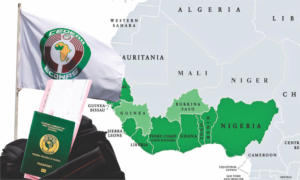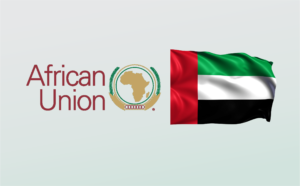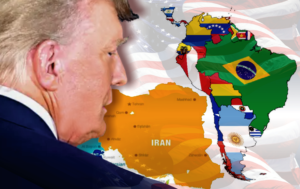Russia Moves to Displace France in Uranium-Rich Niger with Nuclear Power Proposal
For decades, Niger’s uranium has lit up French homes while Niamey itself was left in the dark. Today, that paradox is at the heart of a geopolitical shake-up: Russia is offering to build a nuclear power plant in Niger, signaling its intent to challenge France’s historic dominance in the uranium-rich nation and reshape the energy politics of the Sahel.
Niger, which produces about 4% of the world’s uranium, has long been a crucial supplier to France’s nuclear industry. French giant Orano (formerly Areva) has operated Nigerien mines since the 1970s, supplying uranium that powers French reactors and provides nearly three-quarters of France’s electricity. But in Niamey, electricity remains scarce—an irony that has fueled resentment for years.
![]()
Now, amid a broader rupture with Paris, Niger’s military-led government is turning eastward. Moscow, already cultivating new partnerships in Mali and Burkina Faso, has signed an agreement with Niger to deepen cooperation on civil nuclear energy. Under the deal, Russia’s state-owned Rosatom would help develop nuclear infrastructure, from power plants and research reactors to medical applications and training programs for local specialists.
“Our task is not just to participate in the extraction of uranium,” Russian Energy Minister Sergei Tsivilev said recently. “We must create an entire system for the development of a peaceful atom in Niger.”
The overture comes at a pivotal moment. Niger’s military rulers have adopted a nationalisation policy aimed at reclaiming control of strategic resources—including uranium, gold, and oil. Contracts with Orano are being revised, royalties raised, and new clauses inserted to ensure more of Niger’s mineral wealth is refined at home rather than exported raw.
The French company, once untouchable, now faces existential pressure: Orano has warned that SOMAIR, its joint venture with Niger, is teetering toward bankruptcy after a year of disrupted exports.
For Niger’s leaders, the shift is both ideological and pragmatic. “We cannot remain a supplier of raw uranium while our people live in darkness,” declared a senior official in Niamey. The government sees Russia’s offer not only as an energy solution but also as political validation for its push to rewrite decades of unequal partnerships.
Niger’s urgency is sharpened by a worsening power crisis. Earlier this year, Nigeria slashed electricity exports to Niger by nearly half, from 80 megawatts to 46 MW, following political tensions after Niger’s 2023 coup. The cuts plunged Niamey and regional towns into rolling blackouts, crippling hospitals, schools, and industries.
For ordinary Nigeriens, the crisis is deeply personal. “We mine uranium that powers Paris, but my children do homework under candlelight,” said Abdoulaye, a teacher in the northern city of Arlit, where French companies have extracted uranium for decades. “If Russia can help us use our own resources, why should we refuse?”
Moscow’s entry into Niger is more than an energy project, it is a geopolitical gambit. By tying its offer to Niger’s domestic energy deficit, Russia positions itself as both development partner and strategic alternative to France. The move fits into the broader strategy of the Alliance of Sahel States (AES), the military-led bloc of Mali, Burkina Faso and Niger, which has sought to reduce Western influence while courting new allies, including Russia.
![]()
For France, the stakes are existential. Losing Niger would not only weaken Orano’s uranium lifeline but also mark a symbolic retreat of French power in its former colonies. For Russia, meanwhile, the symbolism is just as powerful: Moscow, offering the nuclear know-how that Paris never delivered, could cement its role as the Sahel’s new power broker.
Still, building a nuclear power plant in Niger is no small feat. The country lacks the infrastructure, regulatory framework, and skilled workforce to support such an ambitious project. Financing, security concerns, and international oversight will also be major hurdles. Analysts warn that Niamey’s embrace of Moscow could deepen dependency in a different form of trading one foreign patron for another.
“There is a risk that Niger simply replaces France with Russia without fundamentally changing the equation,” said Paul Melly, a Sahel analyst at Chatham House. “The challenge is whether Niger can truly leverage its uranium for domestic benefit, rather than as a bargaining chip in great-power rivalries.”
Beyond the geopolitics, the stakes for Nigeriens are stark. With one of the world’s fastest-growing populations and chronic electricity shortages, the need for reliable power is urgent. Hospitals struggle with frequent outages, small businesses rely on costly diesel generators, and students’ futures are dimmed by a lack of light.
For citizens, the prospect of nuclear power evokes both hope and skepticism. “If it means we finally get steady electricity, then it is good,” said Fatouma, a shopkeeper in Niamey. “But we have heard promises before.”
Whether Russia’s proposal materializes remains uncertain. But the very fact that Niamey is entertaining the offer underscores a shifting era. The unraveling of France’s dominance, the rise of Russia’s influence and Niger’s determination, however fragile, indicates an opportunity to seize greater control of its destiny.
The uranium that once symbolized Niger’s dependence could now fuel a bid for sovereignty. The question is whether the glow of nuclear power will finally reach Niger’s homes, or remain another chapter in the long story of foreign powers profiting from African resources.






